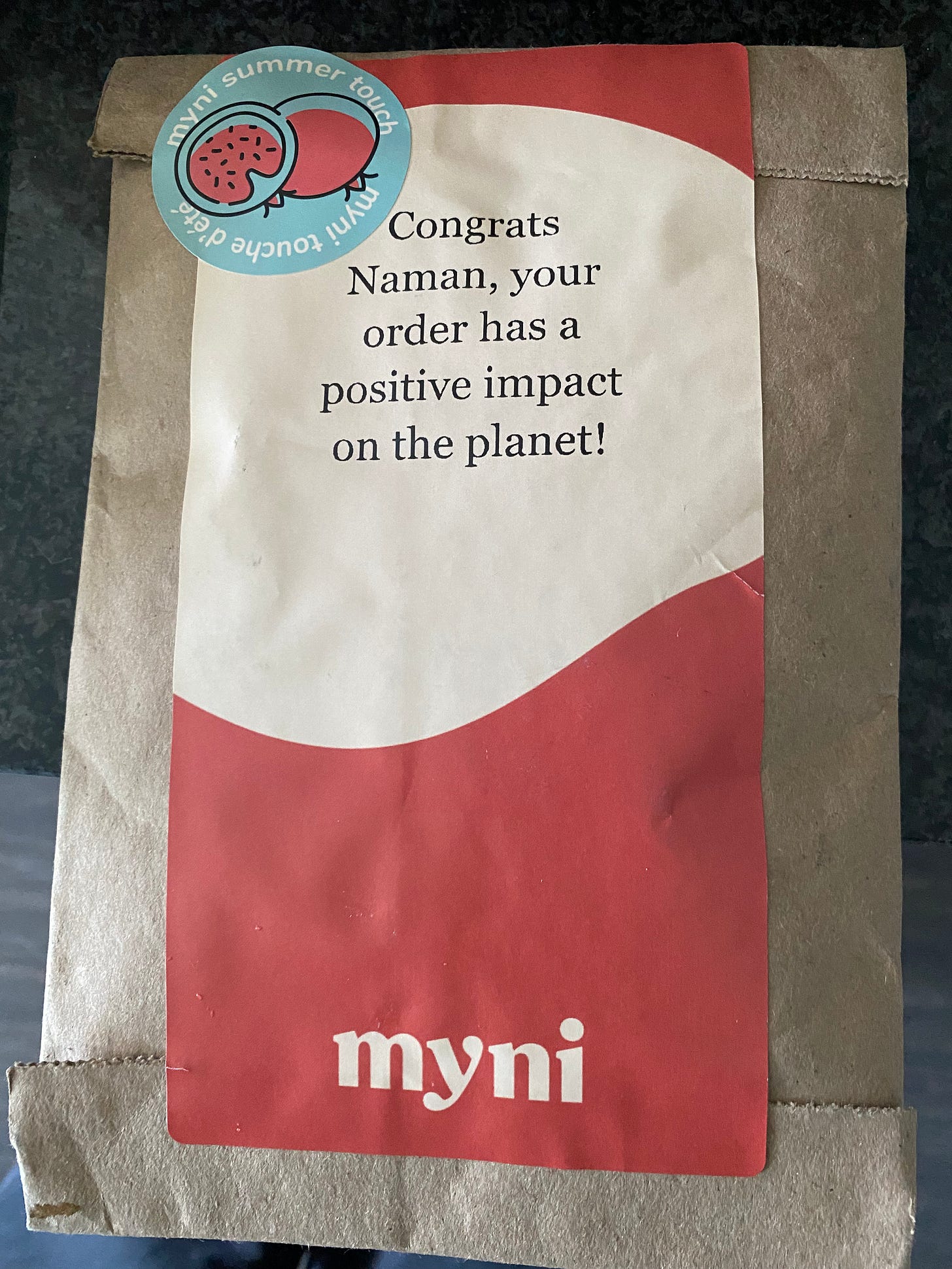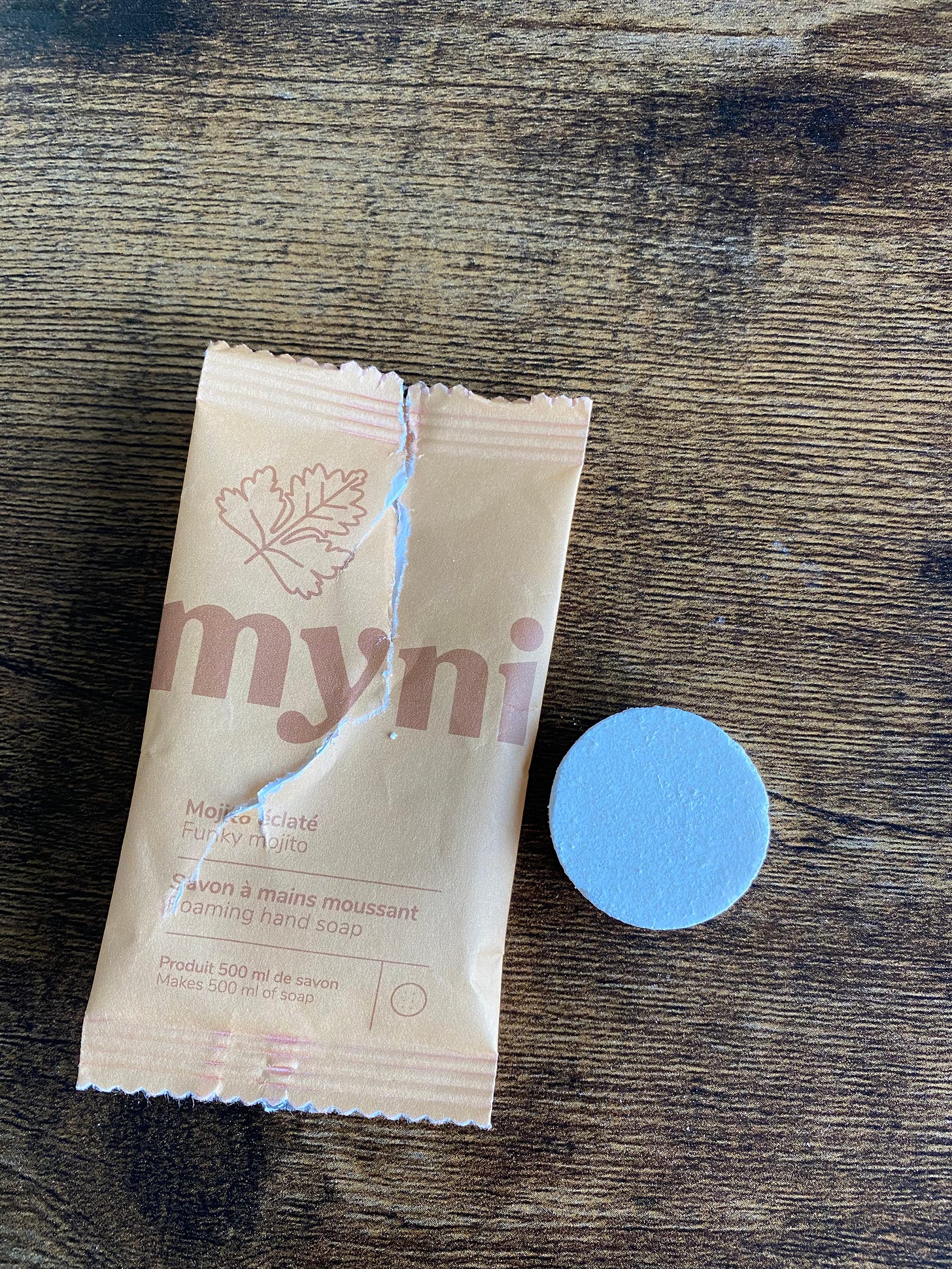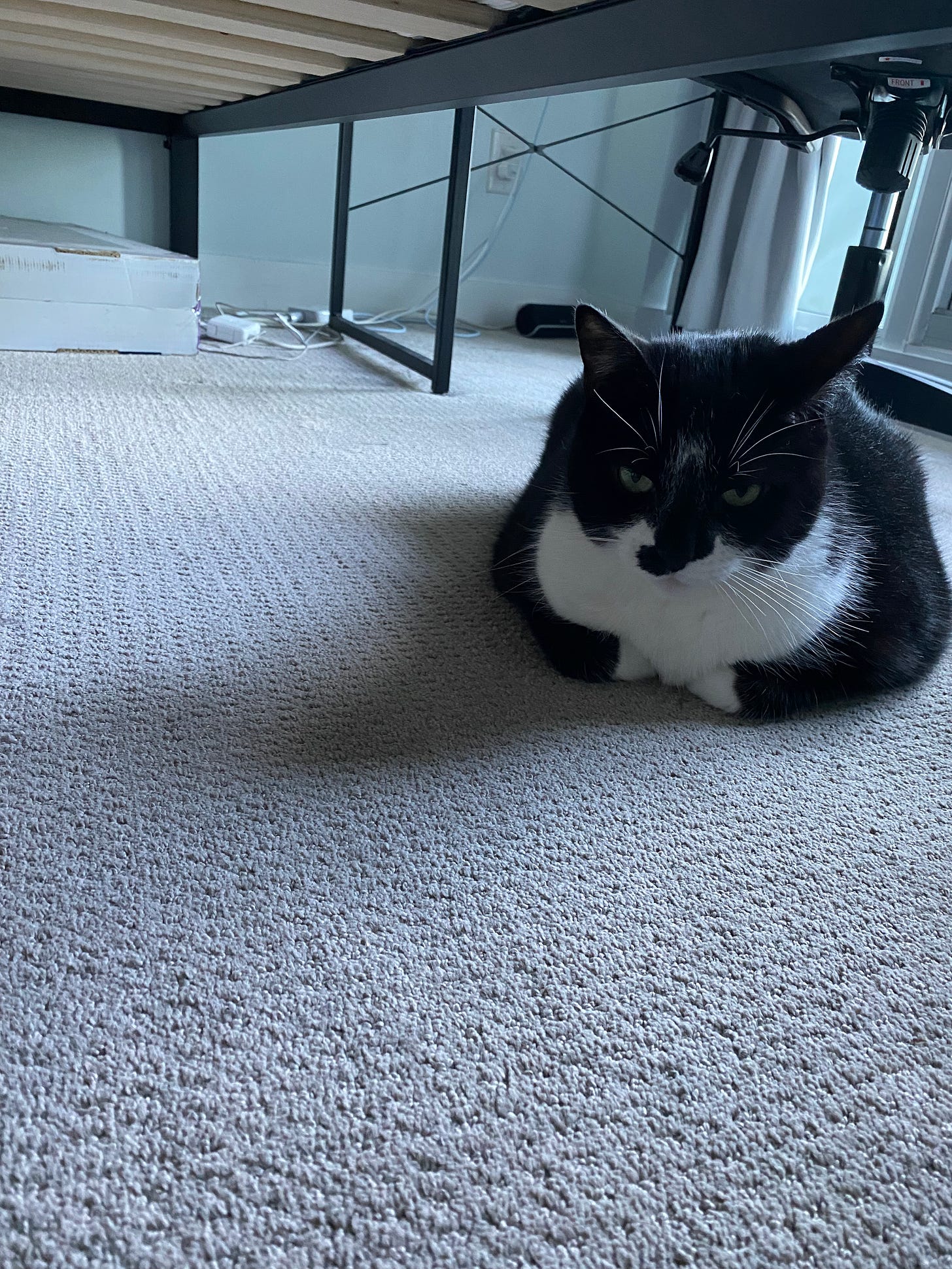I ordered a hand soap last week
And you won't believe how it arrived
It arrived in my mail box.
In this tiny little packet.
And had this tablet inside.
The tablet needs to be dropped into a foaming dispenser with water. It would dissolve and create a hand wash solution.
And that’s what most of the cleaning and personal care products are- a little bit of active ingredient and a lot of water.
For the last few decades, for our personal care and household needs (liquid soaps, shampoos, cleaners), we have essentially been purchasing water in plastic bottles.
Not only does this contribute to plastic pollution, but the transportation of plastic and water combo has also been polluting the planet.
Let’s see how these 3 startups are providing an alternative to the plastic & water combo⬇️
Wasteful and inefficient…Pick up any personal care product around you. Check the ingredients. Did you find aqua/water on the top? Your bottle of shower gel or shampoo is 95% water. For the last few decades, CPG companies have mostly been selling us water in plastic bottles- increasing the plastic pollution and CO2 in the air.
I’ll have it neat, please…Liquid soaps grew in popularity in the 1960s with the launch of disposable plastic bottles. But 80-95% of them is water. In an effort to reverse this trend, the Swedish design studio form us with love has launched its first product Forgo. It is a mix-it-yourself hand soap in the form of a concentrated powder.
The powder contains 6 core ingredients that have been there since the ’80s.
A 12-gram sachet of powder has to be added to 250ml of hot water and you will have a liquid soap ready in under a minute.
A refill sachet creates 85% less emission than a new bottle of soap.

The refills arrive in a thin paper envelope… which is 90% post-consumer recycled. Instead of plastic, they are coated with a water-soluble, compostable paper coating. This coating dissolves through water, heat and friction at the time of recycling. Forgo plans to extrapolate their experience with hand washes to other personal care products in the future.
Which one are you?…Do you have an All-Purpose Cleaner at home that you use to clean everything or you’ve got a separate one for your bathroom, kitchen and windows? Either way, you’ve been paying for water and fossil fuel-based plastic. Cleaning products are a combination of 90% water, plastic bottle and active ingredients. So why can’t we just ship the active ingredients, fill the water at home and reuse the plastic sprays that we already have at our homes?
Buy the bottle once…Some health issues made Mahira Kalim start Spruce, where the team believes that consumers don’t need a separate plastic-packed product for every inch of their homes. Instead of selling cleaning products in a plastic container, this UK-based startup ships the active ingredients of multipurpose and bathroom cleaners in a 4g sachet.
These sachets can be discarded in your food waste bin or home compost- won’t lie around for 500 years like plastic.
The packaging weighs 140 times less than a cleaning bottle. Needs less energy for transportation- better for the environment.
If you still need a bottle, they would send you an aluminum one instead of plastic.

Cleaning products are full of toxic ingredients…Spruce is a vegan and cruelty-free brand whose products are made from ingredients that are mostly food or cosmetic-grade, with 100% pure organic essential oils. For instance, instead of parabens, ammonia, chlorine and palm oil, it contains sodium coco-sulphate – the fatty acid from coconut oil– and essential oils such as eucalyptus and geranium leaf.
OK, this is crazy…Shampoo production has always been a wasteful process. It is made by heating and cooling a water-based formulation to create an emulsion, put into plastic bottles and transported across borders. Ideally, we just need 20% of the ingredients that are there in a shampoo bottle. The rest is water and preservatives that keep the ingredients + water mixture intact for months and years.
Chemical engineer to the rescue…Kailey Bradt was frustrated over continually running out of travel-sized shampoos and exploding refillable containers. She soon realized how much water goes into shampoos. As a chemical engineer, she understood product formulations and thought that a water-activated powder could be the solution. That’s how Susteau (a sustainable haircare solution) was born.
The water-activated powder is incredibly lightweight- consuming less fuel to reach the consumers.
It takes less time and resources to manufacture as there isn’t a need to create an emulsion.
As there’s no water, there’s no risk of bacteria spoiling the product. This eliminates the need to add any preservatives.

Healthy hair, healthy planet…A vegan and cruelty-free brand, Susteau’s products are made of 10 ingredients(11 if you want the scented version). The product is free of sulphates, parabens, silicons, and synthetic colours and fragrances. Did I mention no preservatives?
🙋Trivia of the week
A company in New York City has created what it calls the “world’s most sustainable spirit”.
The business, which was a finalist in Elon Musk’s Xprize, hopes to be at the vanguard of companies that create things from X – other uses include the reinforcing of concrete and the production of materials to replace certain plastics and metals.
Can you identify X or guess what makes it sustainable?
Thanks for reading today’s edition. If you liked it, please share it with your network.
Hit that 💚 if you liked today’s edition.
Thanks and see you next week😄












